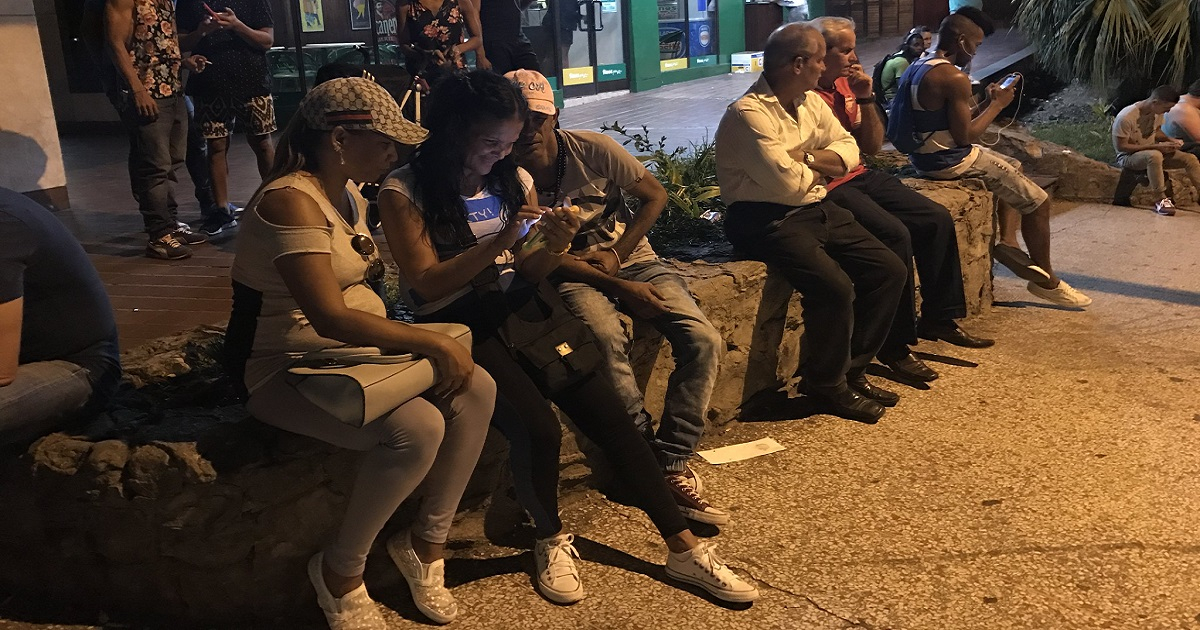
The Cuban government announced the entry into force of regulations for electronic surveillance in the country, without a judge having to authorize the scrutiny of information on people and entities investigated for alleged criminal activity.
TheExtraordinary Official Gazette No. 27 published this November 18thDecree-Law 389 of 2019 with new provisions from the Council of State of Cuba that mark modifications to the Penal Code, the Law against Acts of Terrorism and the Criminal Procedure Law, and open a legal gap for government supervision over people involved in crimes.
The legislation is based on the fact that "it is necessary to strengthen the internal criminal law, as pertinent to what is prescribed in the international treaties in force for the country with the objective of increasing the effectiveness in preventing and confronting the crimes of money laundering and financing of terrorism, in defense of national interests".
But it also insists on the need to "codify the application of special investigation techniques, in correspondence with the postulates endorsed in the Constitution of the Republic," which extends the scope of police investigations on the population.
"This legislation opens a new stage of police control and repression in Cuba," he toldCyberCuba the lawyer Sergio Comas, based in Miami. "It is, among other implications, that from now on, State Security operations that were previously carried out in secret will have legal protection."
So far, the official Cuban press has not echoed the publication of the decree.
In the chapter dedicated to Special Investigation Techniques, the decree establishes that - for the purposes of this law - "covert investigation, effective collaborator, the use of electronic or other type of surveillance and controlled deliveries" are established. and they will be used whenever they are suitable or necessary for the investigation of criminal acts that, due to their severity, connotation or organization, require it, including operations whose origin or destination is outside the country.
In fact, special investigation techniques are now part of the Criminal Procedure Law (as Article 110), with the aggravating factor that the citizen's state of defenselessness will be worse than in other countries due to the absence of an independent judiciary.
Electronic surveillance is classified as investigative work with means whose application provides "the listening and recording of voices, location and tracking, photographic fixations and filming of images, intervention of communications of any type, access to computerized systems and other technical resources that allow us to know and prove the criminal act."
"The Ministry of the Interior - the decree states - will guarantee the confidentiality of the information obtained through the use of this technique; those that are not related to the crime investigated cannot be disclosed and will be destroyed immediately."
The document adds that "the criminal instructor is in charge of requesting the prosecutor's approval for the use of said techniques, in writing in which he must substantiate the need and scope of their application based on the particularities of the fact investigated, the participants and dangerousness, as well as the reasons that justify its use".
The Attorney General of the Republic will authorize the application of these investigative techniques when it is the prosecutor who carries out the investigation or the investigation of the preparatory phase file, or when they are used to investigate events whose origin or destination is abroad.
The images captured by public video protection cameras will not require the approval of the prosecutor for their use, except when they are directed inside buildings or affect third parties not linked to the investigation.
When defining the category of "covert investigation", the text defines it as "the carrying out of operations through the use of undercover agents, trained by the specialized bodies of the Ministry of the Interior to penetrate and remain informed in order to exercise control of the activities crimes in question, with or without the use of other technical resources".
"The direction of the actions to be carried out and the protection measures of the undercover agents during the development of the investigation; as well as their true and assumed identities, will be the responsibility of the specialized bodies of the Ministry of the Interior," adds the legislation. "The undercover agent is exempt from criminal responsibility, as long as he does not instigate the commission of the crime or, in the course of the investigation, performs acts other than those specifically entrusted with excess or disproportionality, in relation to the needs or purposes of the investigation."
Regarding the so-called "effective collaborator", the legislation defines it as the accused who provides essential information to prevent the continuation of the crime or the perpetration of another, helps to clarify the fact investigated or other related events, or provides useful information to prove the participation of other defendants.
It is also established that remittances that are considered "illicit" may be intercepted.
The application of these regulations extends to any act that appears classified as a crime in the Penal Code.
What do you think?
COMMENTFiled in: